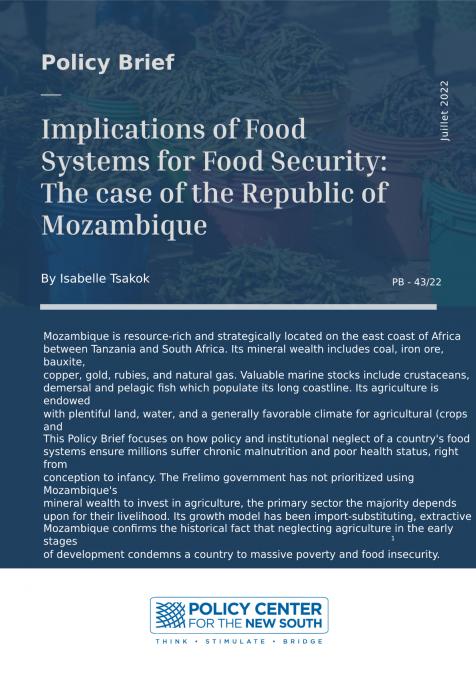Publications /
Book / Report
Millions are severely malnourished in a world where there is enough for all. Hunger and malnutrition stalk more than 3.1 billion people. Yet, widespread hunger in all its forms is a problem which has been largely solved at the macro level in today’s high-income, industrialized countries. Their “escape from hunger and premature death” is a fairly recent phenomenon. It began around 300 years ago, continued for most of the 20th century and is still ongoing today. The problems faced by poor countries nowadays are similar to those faced by today’s wealthy countries for over two centuries.
What can we in the New South learn from the achievements and struggles of different countries around the world on how to achieve food security for all? This book is about what it has taken to achieve food security in successful countries, what lessons we can derive from both successes and failures in agri-food development worldwide, and what opportunities and challenges lie ahead.
The main message is that such achievements require that the vicious circle between undernutrition and low agricultural productivity be broken. It takes sustained government commitment to increase the productivity and incomes of the rural poor by integrating their agricultural and rural economy in a sustained growth process that transforms both agriculture and the overall economy. Such a decades-long process is necessary but not sufficient, as it needs to be complemented by investment in areas outside the agri-food sector, such as in human capital, a social safety net to strengthen the productivity and resilience of people, in an environment threatened by climate change.
Governments must build a business-friendly environment within a stable macro framework and invest in the macro, trade and agri-food sectors, so that farmers themselves want to invest in the productivity of their farms because they view it as profitable. Since climate change is challenging the known techniques of an already risky sector, governments must invest in research, extension and knowledge dissemination so that farmers especially, the majority of whom are smallholders, can thrive and be resilient and sustainable. More broadly, investment in human capital and in the generation of a knowledge base, including the data needed to monitor, evaluate and guide policies, is essential for driving a knowledge-intensive and inclusive process of economic transformation. Success is within reach to the extent leadership’s vision of a food secure country is implemented by competent administrations committed to the public good.











